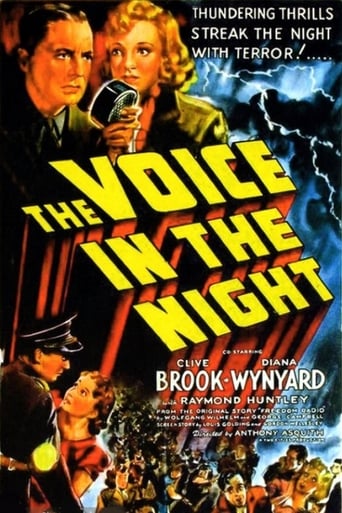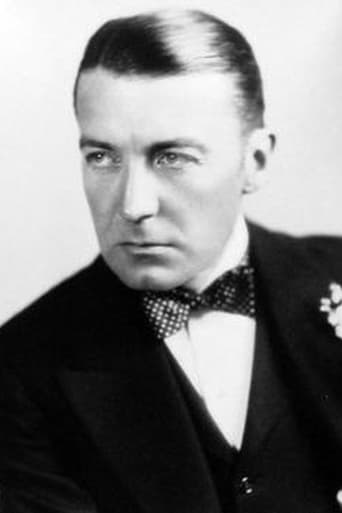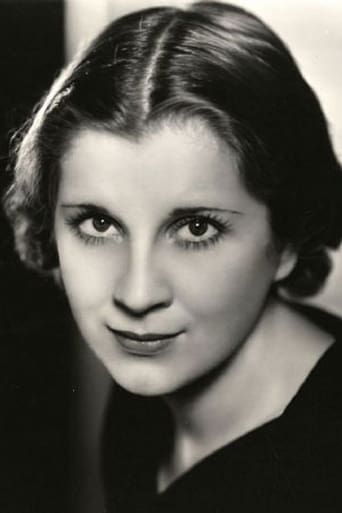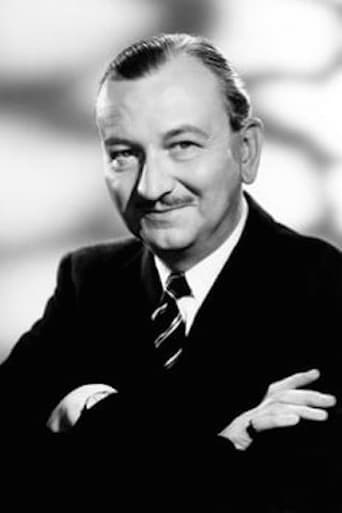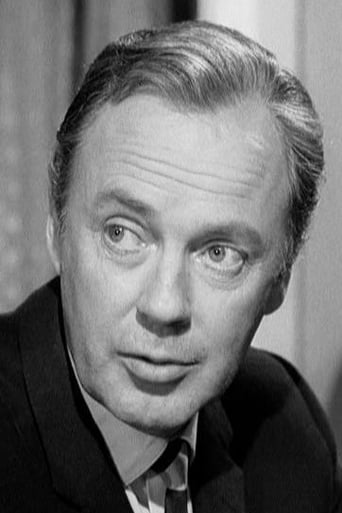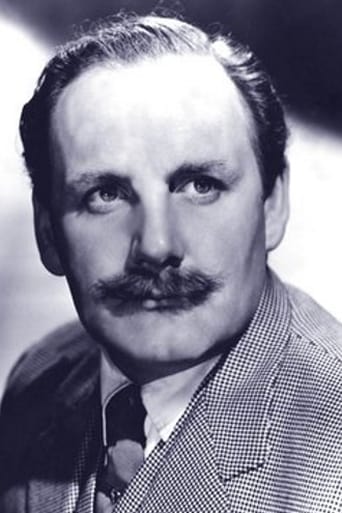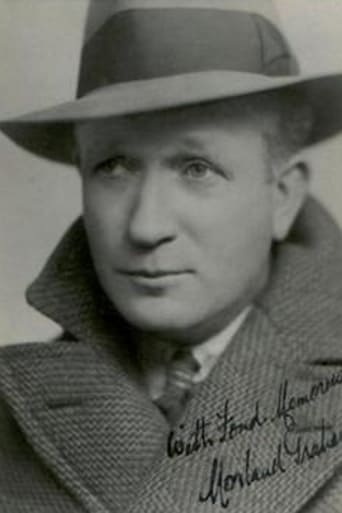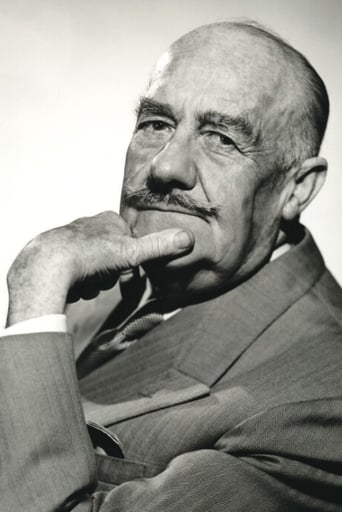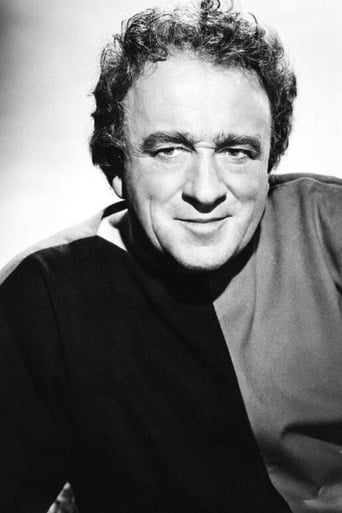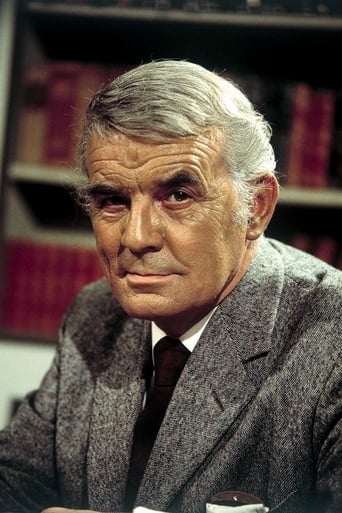Hitler's doctor is gradually realising that the Nazi regime isn't as good as it pretends to be when his friends start to "disappear" into the camps. His wife is courted by the party and accepts a political post in Berlin. Meanwhile Dr Karl decides to try to do something to counteract the Nazi propaganda and with the help of an engineer and a few friends he sets up the Freedom Radio to counteract the Nazi propaganda.


Reviews
FREEDOM RADIO (AKA "A Voice in the Night") 1941This production is an early WW2 British propaganda film set just before the start of the war.Clive Brook plays a doctor who just happens to be on of Adolf Hitler's personal medical team. Brook is married to a successful stage actress, Diana Wynard. Also in the mix here is Wynard's brother, John Penrose, and Gestapo man, Raymond Huntley.The Nazi Party has been in control for 6 years and the country is falling deeper under Hitler's grip. Brook and a group of friends from his school days meet for drinks every couple of weeks. It seems that every meeting there are fewer and fewer friends showing up. The men are running afoul of various Government edicts and are ending up in the camps. Brook is growing more annoyed with the direction Germany is going.Matters come to a head when his priest friend, Morland Graham is killed while being arrested. One of the SS types making the arrest was his wife, Wynard's brother, John Penrose. Brook has had enough and decides to set up a resistance group.The small group of close friends and like-minded types set up a mobile radio broadcaster. They use this to hit the airwaves spreading the truth on the Nazi machine. The Gestapo types are increasingly hot under the collar over their inability to catch the "Freedom Radio" crew.The main reason that they can stay ahead of the Nazis, is that their radio is onboard a small motor launch. They are always on the move which prevents the Gestapo from getting a radio position fix. The group pulls a big move and sabotage one of Hitler's speeches. This however results in the death of one of the group.Brook's wife, Wynard, is flattered by the attentions of the Party and accepts a political appointment. She cannot understand Brook's growing dislike of the regime.The Gestapo pulls out all the stops and finally corners Brook and Wynard, who has now joined her husband. The two are shot dead and the end of the "Freedom Radio" is announced over the airwaves. The surviving members of the group are however soon back on the air continuing the struggle.This quite watchable film was put out when the British were still for the most part, on the losing end of the conflict. The acting is acceptable, though Brook is a tad too stiff lipped for me. He always reminded me of the British version of American actor, Richard Dix.Worth a look if you can find it.
Recently Film Four in the UK has been screening vintage British films from the 30s and 40s and this entry directed by Puffin Asquith demonstrates just how superior his early work was compared with that of Carol Reed. Reed in fact tackled a similar subject to this the year previously but his Night Train To Munich is light years away from Freedom Radio which is never risible. Okay, they had ten writers on the project and a leading man and leading lady who today would seem mannered in the extreme but they were surrounded by excellent supporting players such as Raymond Huntley, Ronald Squire, Martita Hunt, Bernard Miles and Katie Johnson, so memorable some fifteen years later in the original The Ladykillers. Reed's screenplay had nothing, for example, to compare with Ronald Squire's droll comeback when asked how he enjoyed his recent trip to America 'I didn't go to America, I went to New York'. Clive Brook manages to personify decency and the outrage felt by ordinary Germans at what they observed going on around them - again Puffin employs a crisp economical montage involving boutonnieres that disappear one by one as do their owners. A fine effort.
This is the sort of intelligent movie you simply won't meet with in modern cinema. Yes, it's blatant propaganda, and yet the film serves so much more as a clarion call for justice, civility, and yes, freedom too. What we have in the lead character, Dr. Roder has got to be one of the most real, most believable and admirable heroes in of cinema.My advice is don't get bogged down with the occasional stuffiness of the production, enjoy this exultation on the bravery inside those who are able to stand up for what they believe in.It's a shame Freedom Radio will only ever get seldom showings on obscure channels in the mid-afternoon. This is the sort of film we'd do well to show in history classes.
The title isn't promising, and certainly I could find nothing but disparagement for "Freedom Radio" when I looked it up before today's broadcast: 'tedious propaganda drama' (programme guide), 'outdated and unintentionally funny... accents totally unsuited to middle-European characters' (Radio Times). Maltin, meanwhile, doesn't even bother to give it a mention.So I was very pleasantly surprised to find it an intelligent drama about Germans in the 1930s who gradually come to realise that their country is becoming more and more totalitarian, and are pushed into an attempt at redressing the balance with the only weapon they can think of: the conviction that if only, somehow, they can get the truth out there, things will change. For our part we know, of course, that it didn't work; even they know they won't be able to get away with it indefinitely (although having an ally on the inside can prove invaluable...) But in a world where friends and neighbours are swept up by national loyalty and propaganda or become informers for their own personal profit, in a Nazi Germany that is not yet at war -- even a gesture at resistance can give hope.As a propaganda piece this is quite extraordinarily restrained: the entire cast are played (hence the 'accents' jibe -- might the reviewer have found comic Teutonic vowels less disturbing, perhaps?) as people 'like us', as ordinary Englishmen and women of the period, from the young workman to the nosy neighbour and the Society doctor. The young artist Otto, whose SS work gradually takes over his life, has the vocabulary of a thoughtless young public-school-boy; the Gestapo officer Rabenau who tracks the heroes down is an upright and keen-eyed Intelligence commander who could have stepped out of Fighter Command HQ, not a Prussian caricature. When you consider that the film was made in the darkest days of the Second World War, the decision not merely to show 'good Germans', but to show 'bad Germans' -- Nazi loyalists -- as human (and to eschew the use of heavy foreign accents to represent foreigners speaking in their own language) is impressive.If this film had been made in Hollywood, it would doubtless have featured a young Allied agent or second-generation American (like Karl von Austreim in Mary Pickford's "The Little American" of 1917 -- another film unfortunately written off as 'propaganda') to inspire the locals to acts of heroism. But there is no such facile audience-identification figure: we are forced to place ourselves in the position of pre-war Germans, those same Germans against whom the British cinema in 1941 might have been expected to whip up mindless hate. Instead, they're sympathetic characters. Some of them become ardent Nazi supporters; that doesn't make them less human. It only produces ultimately agonising conflict...Clive Brook, as ever, is superb as the thinking man's thinking man; Diana Wynyard brings conviction to the role of his wife, the actress whose talent brings favour from the Fuehrer himself. Raymond Huntley makes Rabenau a formidable yet admirable opponent who is never likely to be fooled for long, while the younger couple -- Derek Farr and Joyce Howard -- provide easy appeal to the eye as the young workman and his sweetheart.The production values betray a wartime budget: the obvious impossibility of shooting on location in Continental Europe, the stock footage of Nazi parades, and the restricted sets and shortage of extras -- for example, we only ever see Irena's stage triumphs from behind the curtain, and the Gestapo never seem to be able to muster more than half a dozen members at once. There is also a telltale moment when the supposed passage of the Budapest express is marked by the unmistakable shriek of an English locomotive whistle! The script, on the other hand, benefits from a similar parsimony. Little is stated outright if the information can instead be implied: especially in the opening sequences. We know the chilling truth behind the 'rest home' for an inconveniently hysterical witness -- the characters don't. Exposition is neatly avoided, and by and large the film displays an admirable subtlety and restraint. The exception, naturally, is in the rival radio broadcasts -- state propaganda on the one side, claims of debunking on the other -- and there were moments at the end when I felt that the content of the impassioned speeches was too obviously aimed at wartime audiences rather than the 1930s populace it supposedly addressed. But under the circumstances, and given the inevitable ending, the attempt at some kind of upbeat content is understandable.Frankly, the only reason I bothered to sit down to watch this in the first place was the presence of the names of Anthony Asquith and Clive Brook, both old friends from the silent era.... and I wasn't hoping for much. But I've seen some inferior films recently, and this, surprisingly, wasn't one of them: in fact, it reminded me rather of Leslie Howard's "Pimpernel Smith". Too 'British' for American viewers, perhaps: too 'outdated' for the modern generation. Personally, I found its depiction of a society of creeping totalitarianism both unsettling, and more than a little thought-provoking, even today.
